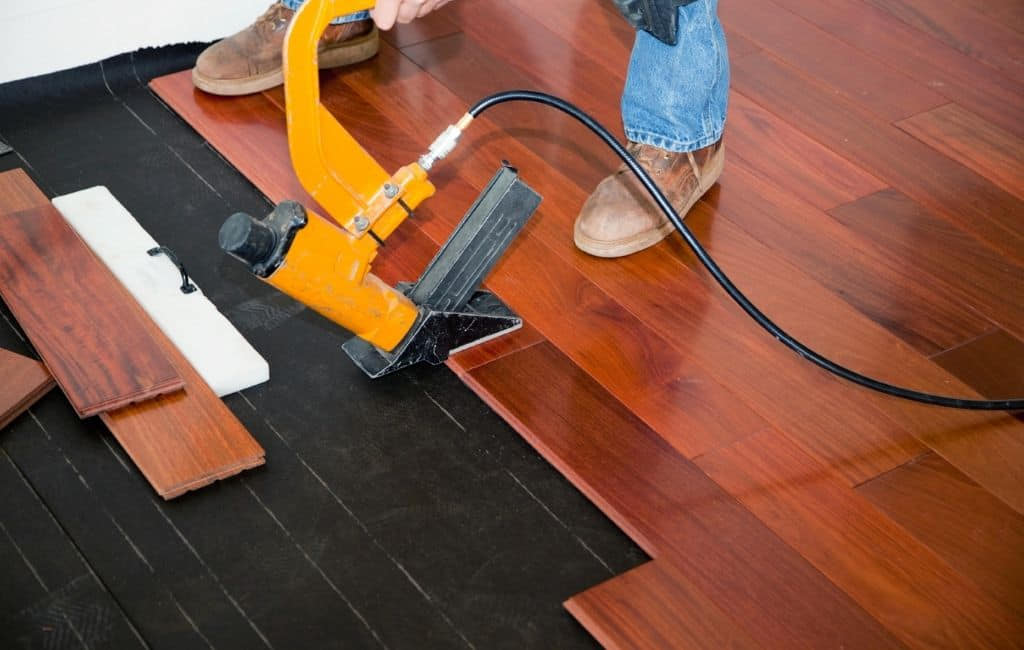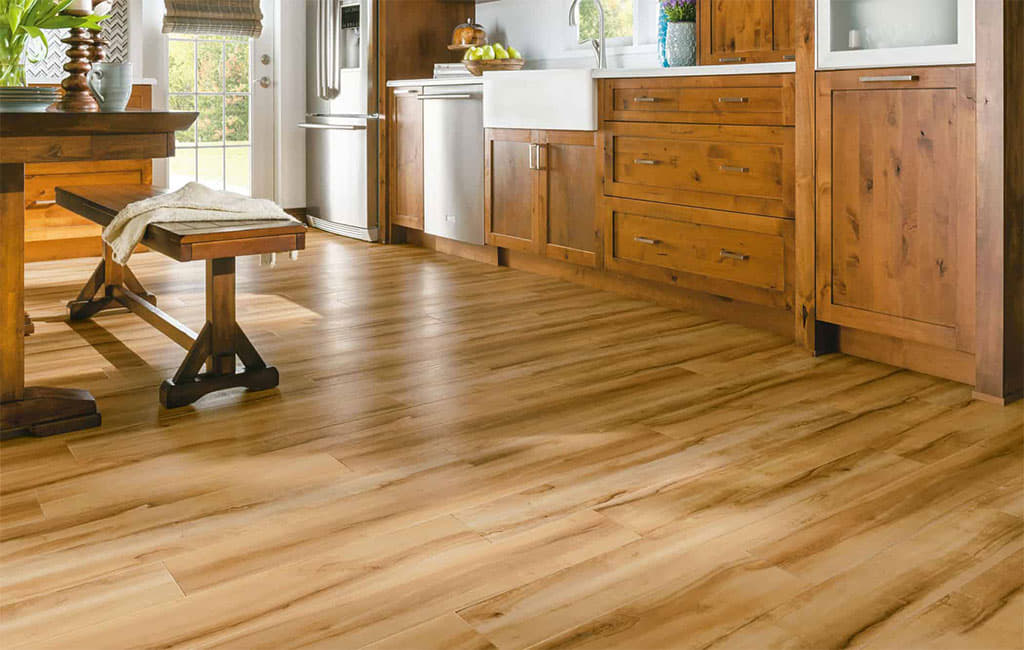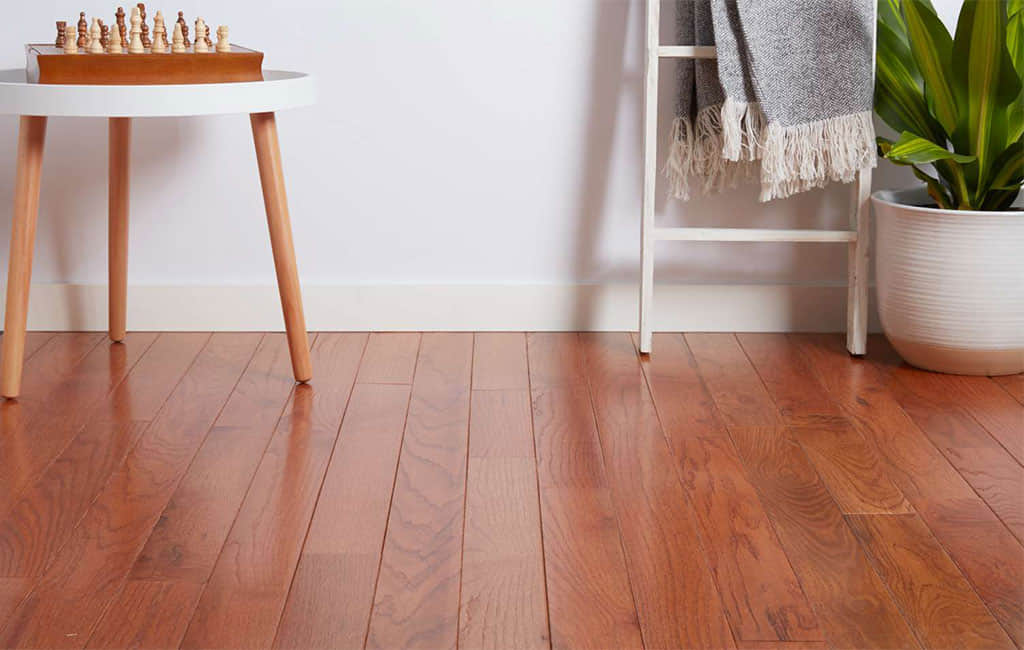When it comes to flooring treatments, the selection of the right option is crucial that is functional, durable, and complements every space’s design. Tile and epoxy flooring are the two most popular options with they have their own drawbacks and features.
If you are deciding between these two flooring solutions, you are at the right place. Flooring Dubai has come up with a comparison guide regarding tiles and epoxy to make the selection process convenient for you.
Epoxy Or Tile? | Major Comparison Aspects For Each Floor Covering
 Here are the major differences between epoxy and tile flooring are discussed for comparison.
Here are the major differences between epoxy and tile flooring are discussed for comparison.
Appearance
Talking about aesthetics, both epoxy and tile flooring are the best options. You have flexible design and color choices when it comes to epoxy flooring, hence, a versatile solution. Also, you can choose different color and pattern options for tiles but they cannot customize them. The appearance of both flooring is entirely dependent on the used materials.
Durability
When it comes to durability, epoxy flooring is the heavy-duty option that can withstand daily foot traffic loads, not showing any signs of wear and tear. On the other hand, floor tiles might crack with the sudden fall of any heavy equipment or object. Epoxy flooring is considered the best as compared to tiles when it comes to longevity.
Maintenance
Maintenance is another essential aspect to consider when comparing tile and epoxy flooring. Again, it is far easier to clean epoxy flooring because a regular sweep and periodic mopping are enough to vacuum this oil and chemical-resistant flooring. On the other hand, tiles can get grout lines over time and build up dust and dirt inside, making it harder to remove the entangled dirt.
Costs
Prices are another integral aspect that makes the difference between these two options. The costs of both flooring treatments vary based on the area per square meter. Tile flooring costs more upfront as compared to epoxy flooring. Epoxy flooring is a way cheaper option than tiles to upgrade your residential and commercial spaces.
Installation
Talking about the ease of installation, tiles are the best option because it doesn’t require a hectic installation process, unlike epoxy flooring. Epoxy flooring requires a detailed procedure of applying an epoxy coating, careful preparation of the concrete surface, proper acclimation time, and expertise as well. It is recommended to get them installed by professionals.
What is Epoxy Flooring?
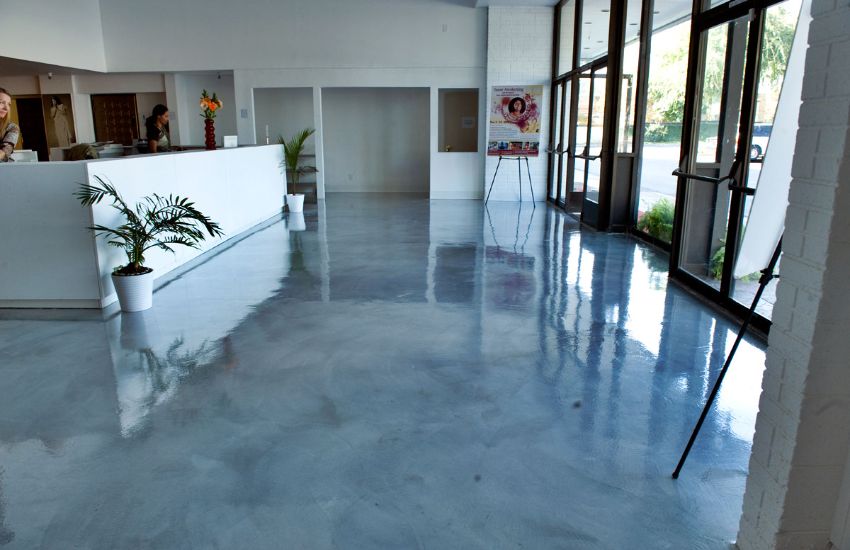
Epoxy flooring is a highly sustainable coated surface that is created by mixing resin and hardener and applied to the concrete floors. On combining resin and hardener, a strong and long-lasting mixture is created that can withstand heavy loads.
Pros Of Epoxy Flooring
Have a look at its negative aspects to see if it is worth the investment.
1. Highly Durable
Epoxy flooring comes up with a higher sustainability rate and can run for longer spans. You can have it with you for decades with no severe damage and signs of wear and tear, hence, best suited for high-traffic areas.
2. Easy Cleaning Process
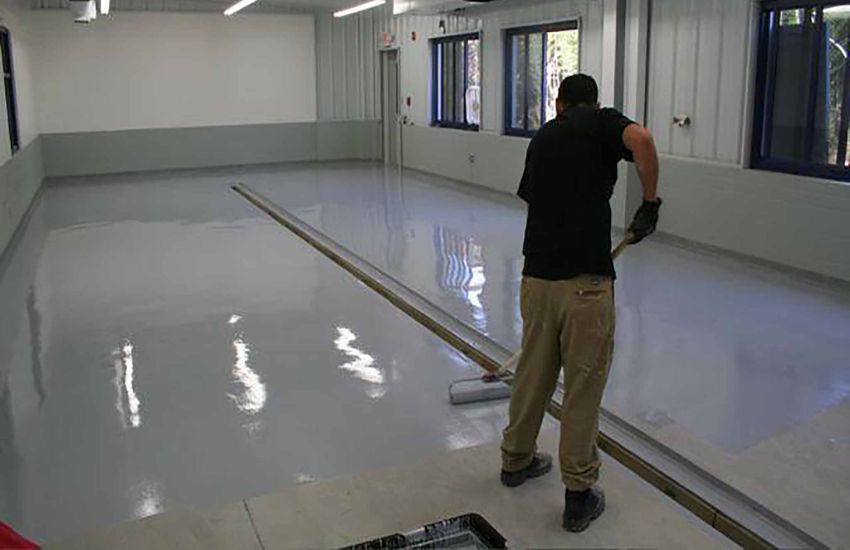 Epoxy does not require any time-consuming cleaning process. This flooring can save you time and energy as it requires zero to low maintenance. All you have to do is to perform regular sweeping and periodic cleaning.
Epoxy does not require any time-consuming cleaning process. This flooring can save you time and energy as it requires zero to low maintenance. All you have to do is to perform regular sweeping and periodic cleaning.
3. Can Be Customized
This outstanding floor covering can be customized according to your choice as it comes up in a versatile design variety. This customization option gives this flooring another positive point to be a prior choice for most individuals.
4. Strong And Sturdy
The epoxy floor has a very strong and sturdy build material and tends to withstand heavyweights. It is a perfect choice for industrial areas, garages, basements, and other outdoor spaces because it is also moisture, scratch, and dents-resistant.
Cons Of Epoxy Flooring
Have a look at the downside of this floor treatment.
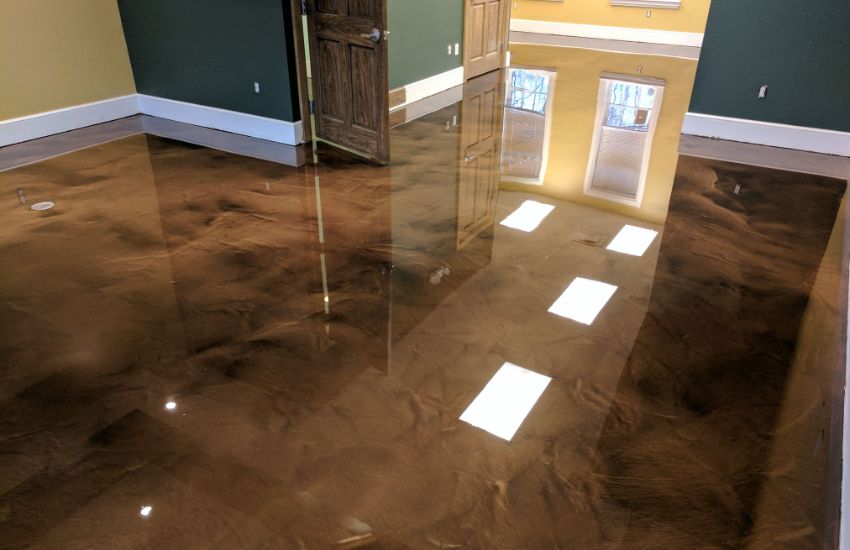 1. Complicated Installation
1. Complicated Installation
Epoxy material requires coating application over subflooring, and it is not as easy as other floor options. Next, you need to level up the hard mixture over the floors for a unified appearance. It needs professional assistance to create a s[poxy coating surface.
2. Not Resistant To Slips
The smooth and sleek surface of this sustainable flooring treatment is not resistant to slips. It is not a good choice for people with kids because it gets quite slippery after exposure to water, causing harm or even you can get some serious injuries.
3. Costs You Maximum
Unlike other floorings, you can customize it according to your preferences by spending more than other solutions available. Also, the preparation of concrete, coating application, leveling up, and hiring installers can be collectively expensive.
What is Tile Floor Covering?
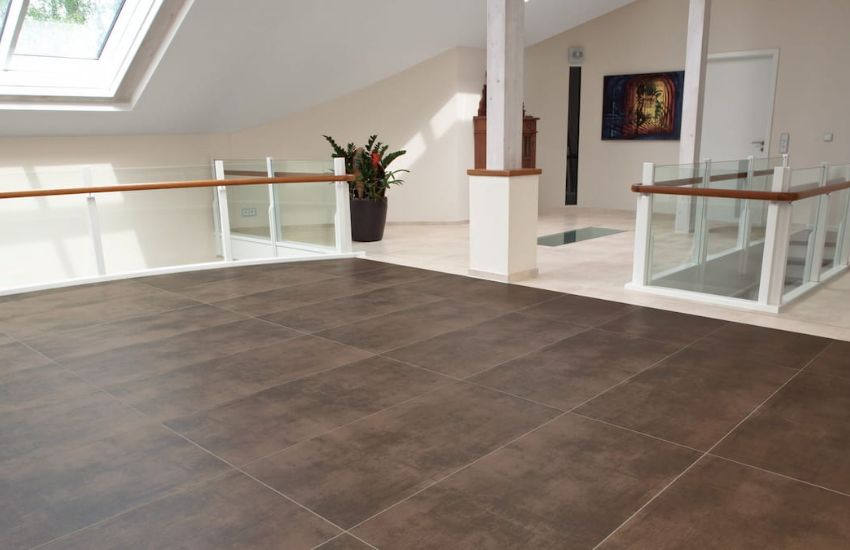 Tile is the traditional flooring option that has been popular for centuries. It is made from various types of materials like ceramic, porcelain, and natural stone. Also, you can get them in different patterns, colors, and sizes.
Tile is the traditional flooring option that has been popular for centuries. It is made from various types of materials like ceramic, porcelain, and natural stone. Also, you can get them in different patterns, colors, and sizes.
Pros Of Tile Flooring
Now, we will discuss tile floor benefits.
1. Offer Easy Installation
Tile flooring treatment requires a really easy installation process and thus does not cost you as much on this job as epoxy does. It is a DIY-friendly project that can fit into any residential and commercial space, and it’s especially suitable for outdoor tile applications where durability and ease of maintenance are key. With basic knowledge, tools, and materials, you can achieve great results.
2. Comes In A Versatile Range
One of the best things about this flooring solution is that it comes up in a wide design variety. You can have them in different designs and install them in any pattern on the floor to enhance your area’s interior or exterior style but they are not customizable.
3. Ease Of Cleaning
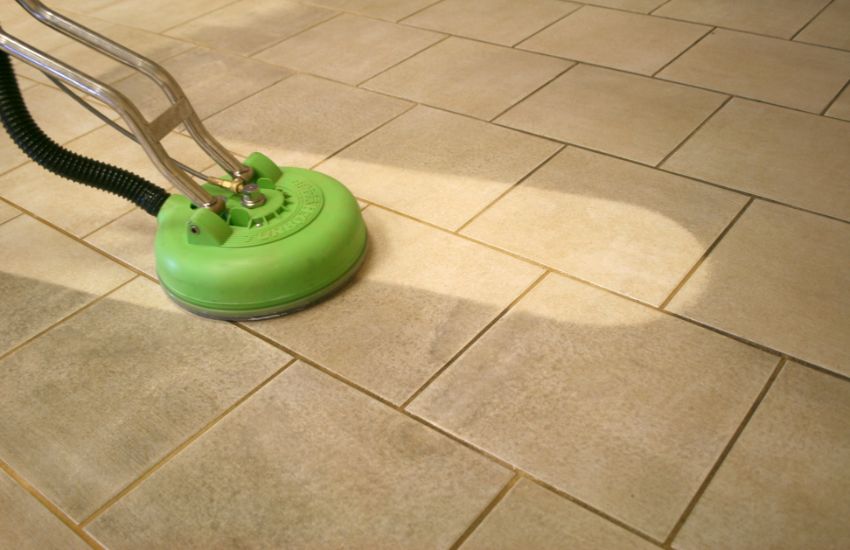 Another major thing that makes this floor covering a good option is the ease of cleaning. You do not have to invest so much time and effort when there are no grout lines on the floors. You can clean it with a wet mop and use a vacuum cleaner.
Another major thing that makes this floor covering a good option is the ease of cleaning. You do not have to invest so much time and effort when there are no grout lines on the floors. You can clean it with a wet mop and use a vacuum cleaner.
4. Can Be Replaced
One of the best aspects of tile flooring is its flexibility of replacement in case any tile gets cracked and damaged. You can simply use the leftover tile piece for replacement or find the exact match from the market. Also, you can find the substitute in terms of tile size, color, and shape.
Cons Of Tile Flooring
Here are the drawbacks explained:
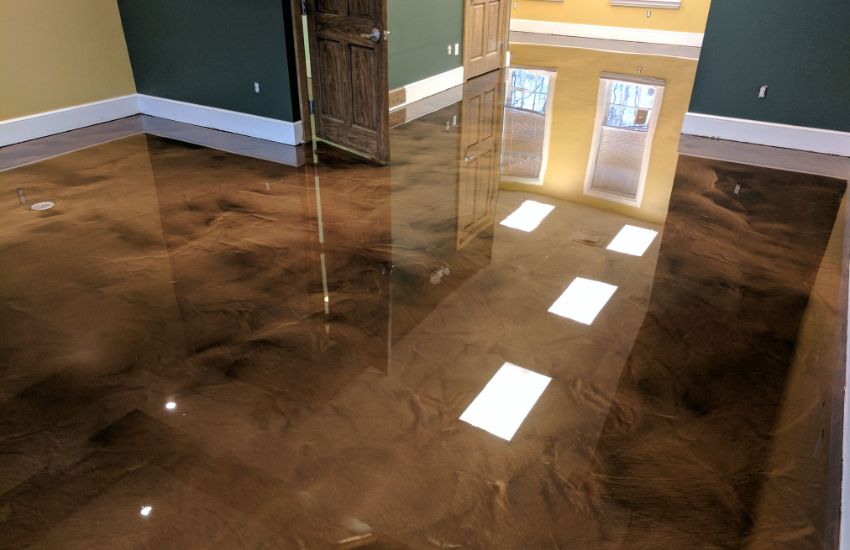 1. Challenging Cleaning Of Grout Lines
1. Challenging Cleaning Of Grout Lines
As we have mentioned earlier, cleaning tile flooring is really easy; however, the grout lines of this flooring are really challenging to get cleaned. Because the dust and dirt particles keep accumulating in those lines, requiring a lot of time and effort for perfect cleaning.
2. Customization Options Are Limited
Another thing that makes this flooring not so good is its limited design options for customization as epoxy. Mostly, you’ve to get your hands on ready-made products, and there are rare chances to get them customized.
3. Highly Prone To Cracking
Lastly, the major reason for not purchasing tile floor covering is that it is highly prone to cracking. Also, when it is cracked, you cannot repair it rather you need to replace it which will cost you a lot.
Final Verdict!
Epoxy and tile flooring have their own drawbacks and benefits. It’s your ultimate decision to select the flooring based on your personal preferences and requirements. We have discussed all the similarities and dissimilarities and pros and cons of both flooring solutions to find the major differences and better understanding of both epoxy and tile flooring.
Consider your budget, durability, maintenance, and style before investing in one for your residential and commercial renovations. Also, evaluate the environmental impact and resale value of each flooring before selection. Hopefully, this guide will help make you the best choice during the flooring purchase process.


